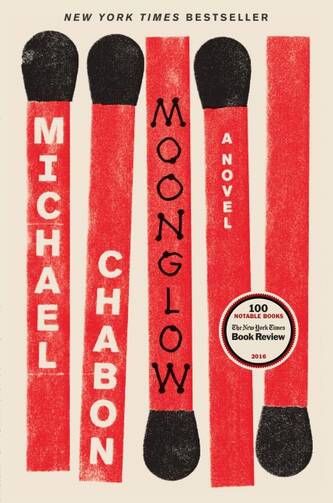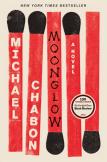A lover of fiction sets out to find the truth
Memoir is where the action is. We have a growing thirst for true stories that help us make sense of our fractured world. Who, after all, has time to get lost in make-believe when life is changing so fast? For many, perhaps most, fiction feels outmoded, irrelevant and impractical. This state of affairs hasn’t escaped the notice of the Pulitzer Prize-winner Michael Chabon. His brilliant and satisfying new book Moonglow, though billed as a novel, may be the most entertaining, well-written and truthful memoir you’ve ever read.
As the narrator, Mike Chabon, interviews his dying grandfather, we travel back and forth in time to different stages in his grandfather’s life––growing up in depression-era Philadelphia; chasing retreating Nazis as a U.S. intelligence officer at the end of World War II; falling in love with a beautiful, traumatized French refugee at the end of the war; and near the end of his life, snake hunting in a Florida retirement community––the result a cavalcade of linked stories that provide a marvelous and convincing kaleidoscope of his wonderful, tragic life.
Chabon’s conversations with his grandfather and with his mother, too, which are interspersed throughout the narrative, add intimacy and verisimilitude. Really every piece of Chabon’s puzzle moves the story forward, magically it seems, given these stories actually happened. The narrator confesses that he first tried writing a novel about his grandfather’s life before realizing that “sometimes even lovers of fiction can be satisfied only with the truth.”
It is as if Chabon the author does everything in his considerable power to convince us this really is a memoir that he had to publish as a novel because of a few fictional liberties he had to take. Chabon is so skilled at getting us to suspend our disbelief, we become enraptured by the “realness” of his story, when like a magician he slyly lifts the curtain with a few unlikely coincidences to reveal his grandfather’s life was made up after all. Ultimately Moonglow makes a strikingly effective argument that reading fiction is still the best way to make your heart race with delight, and, yes, paradoxically, get closer to the truth.
This article also appeared in print, under the headline “A lover of fiction sets out to find the truth,” in the February 6, 2017, issue.









